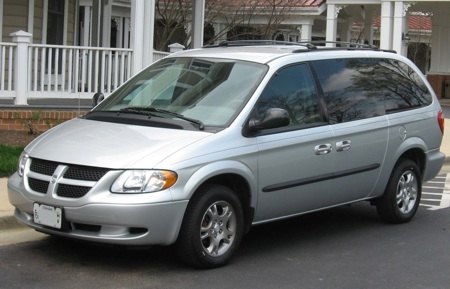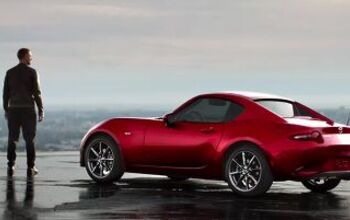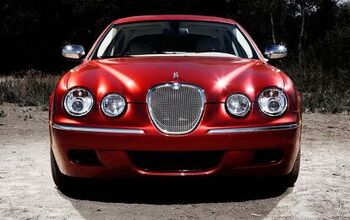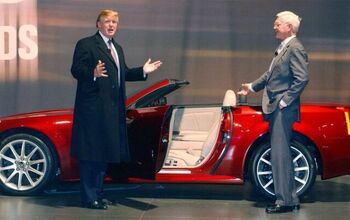Hammer Time: Hit 'em Where They Ain't
One of the hardest questions I have to answer: “When is it cheapest to buy at the auctions?” I often find good deals even in the most competitive times of the year. But if we’re really talking about ‘averages’, as in lowest residual values for used cars, I’d say that the period between late September and mid-November is the cheapest time at the auctions. No spending holidays for consumers. No tax refunds for the public to use as down payments. Even the weather’s a pain since fewer customers visit the lots when the cool season starts. Plus, most used car dealers buy with floorplans (a finance company’s money) which often have nasty clauses that exact fees within 30 to 90 days. So what should you do if the retail deal isn’t for you? To paraphrase baseball Hall of Famer Wee Willie Keeler, in order to find a good deal in this business you have to, “Hit em’ where they ain’t.”
The best deals in this business usually come when competition is constrained on several fronts. For example, I bought a mid-level 2004 Dodge Grand Caravan SE this past Thursday for $2200. The 101,000 miles on it kept the vehicle out of reach for all those dealers who depend on finance companies that have cutoff’s at the 80k or 100k mark. It was also bought at a public auction where dealers are fewer, and the opportunity to collude is greater.
The minivan in question also had a ‘check engine’ light which warded off those who justifiably are concerned about the possibility of replacing a Chrysler transmission. A simple diagnostic tool informed me of the vehicle’s need for a $15 thermostat. Before the sale started the battery was dead. I used my own mobile charger to jump it since the auctions rarely supply enough of these things. Finally, the vehicle was being sold ‘AS/IS’ which means that there was no guarantee regarding the vehicle’s powertrain at all.
In a crowd of about 100, the field essentially shrank down to 2. The auctioneer let the bottom fall out (lowered the price considerably to encourage more bidding) and seven bids later it was mine. Of course now I’ve got to sell the damn thing. But it’s far easier to sell a vehicle at two-third’s of average wholesale than to bid it up and hope for some finance fodder to come your way.
More by Steven Lang
Latest Car Reviews
Read moreLatest Product Reviews
Read moreRecent Comments
- Redapple2 Love the wheels
- Redapple2 Good luck to them. They used to make great cars. 510. 240Z, Sentra SE-R. Maxima. Frontier.
- Joe65688619 Under Ghosn they went through the same short-term bottom-line thinking that GM did in the 80s/90s, and they have not recovered say, to their heyday in the 50s and 60s in terms of market share and innovation. Poor design decisions (a CVT in their front-wheel drive "4-Door Sports Car", model overlap in a poorly performing segment (they never needed the Altima AND the Maxima...what they needed was one vehicle with different drivetrain, including hybrid, to compete with the Accord/Camry, and decontenting their vehicles: My 2012 QX56 (I know, not a Nissan, but the same holds for the Armada) had power rear windows in the cargo area that could vent, a glass hatch on the back door that could be opened separate from the whole liftgate (in such a tall vehicle, kinda essential if you have it in a garage and want to load the trunk without having to open the garage door to make room for the lift gate), a nice driver's side folding armrest, and a few other quality-of-life details absent from my 2018 QX80. In a competitive market this attention to detai is can be the differentiator that sell cars. Now they are caught in the middle of the market, competing more with Hyundai and Kia and selling discounted vehicles near the same price points, but losing money on them. They invested also invested a lot in niche platforms. The Leaf was one of the first full EVs, but never really evolved. They misjudged the market - luxury EVs are selling, small budget models not so much. Variable compression engines offering little in terms of real-world power or tech, let a lot of complexity that is leading to higher failure rates. Aside from the Z and GT-R (low volume models), not much forced induction (whether your a fan or not, look at what Honda did with the CR-V and Acura RDX - same chassis, slap a turbo on it, make it nicer inside, and now you can sell it as a semi-premium brand with higher markup). That said, I do believe they retain the technical and engineering capability to do far better. About time management realized they need to make smarter investments and understand their markets better.
- Kwik_Shift_Pro4X Off-road fluff on vehicles that should not be off road needs to die.
- Kwik_Shift_Pro4X Saw this posted on social media; “Just bought a 2023 Tundra with the 14" screen. Let my son borrow it for the afternoon, he connected his phone to listen to his iTunes.The next day my insurance company raised my rates and added my son to my policy. The email said that a private company showed that my son drove the vehicle. He already had his own vehicle that he was insuring.My insurance company demanded he give all his insurance info and some private info for proof. He declined for privacy reasons and my insurance cancelled my policy.These new vehicles with their tech are on condition that we give up our privacy to enter their world. It's not worth it people.”


































Comments
Join the conversation
LOL! Thanks! I think... I hope...
Steven- I love these articles. They are right up my alley. I just picked up a one owner 81,000 mile 1991 sentra se-r for $1750. It is going to make a good, fun, and thrifty daily driver for me.